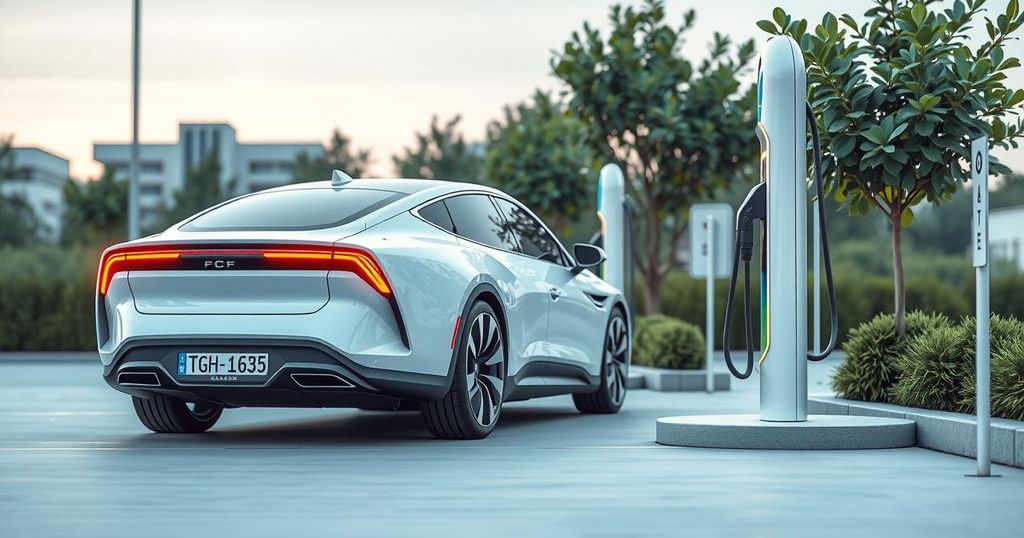BYD’s Five-Minute EV Charging Marks Shift in Automotive Competitiveness

The article highlights BYD’s significant breakthrough in five-minute EV charging, posing a challenge to Tesla as investor confidence in the latter wanes. Western automakers like Audi and Alfa Romeo reconsider all-electric transitions, while Nissan partners with SK On for U.S.-made batteries, reflecting a race for EV competitiveness amid changing market dynamics.
Recent developments in the electric vehicle (EV) sector indicate a significant shift in the competitive landscape, with China’s BYD emerging as a formidable challenger to Tesla. BYD’s introduction of a five-minute ultra-fast charging technology marks a pivotal moment for the EV market, as it allows users to add approximately 250 miles of range in that brief period. This advancement is particularly noteworthy as it addresses common consumer concerns regarding charging times and could facilitate broader EV adoption.
As BYD’s innovations gain traction, Tesla faces heightened scrutiny regarding its stagnant growth and declining market performance. Investors are increasingly questioning Tesla’s strategic direction, particularly as competitors, such as BYD, roll out appealing models at lower price points. Tesla’s decision to focus on premium models, such as the Cybertruck, further distances itself from the affordability that consumers desire. Meanwhile, much criticism surrounds Elon Musk’s political engagements, which have seemingly tarnished Tesla’s reputation among its consumer base.
In contrast, established Western automakers such as Audi and Alfa Romeo appear to be reevaluating their timelines for transitioning to an all-electric fleet. Audi has acknowledged the delay in its transformation strategy and stated that it will extend the life of combustion engines beyond previous commitments. Likewise, Alfa Romeo confirmed that it will continue producing combustion engines alongside future electric variants, reflecting a pragmatic response to evolving market conditions and technologies.
Additionally, Nissan is making strides in EV production by partnering with South Korean battery manufacturer SK On, securing supply for nearly 100 GWh of high-performance batteries for vehicles made in the U.S. This partnership aligns with Nissan’s commitment to electrification, supporting economic growth by creating jobs and ensuring sustainable manufacturing practices. Nissan plans to launch a new lineup of EVs by 2028, underscoring its intention to remain competitive amidst rapidly changing industry dynamics.
Overall, BYD’s advancements in fast-charging technology place greater pressure on Tesla and its competitors to innovate and adapt swiftly. It raises crucial questions about the future of electric mobility and whether the Western automotive sector can successfully keep pace with China’s burgeoning EV industry. The evolving market landscape suggests that consumer preferences for faster charging and lower-priced models could lead to fundamental changes in the competitive dynamics of the global auto industry.
The recent advancements in electric vehicle technology via BYD’s five-minute charging capability signify a potential turning point in the battle for EV market dominance. Tesla’s declining influence raises concerns about its competitive strategy, especially as consumer expectations shift towards faster and more affordable options. Furthermore, established brands like Audi and Alfa Romeo are reconsidering their all-electric timelines, while Nissan moves forward with strategic battery partnerships. The developments underscore the necessity for innovation and adaptation in a rapidly evolving automotive landscape.
Original Source: insideevs.com







